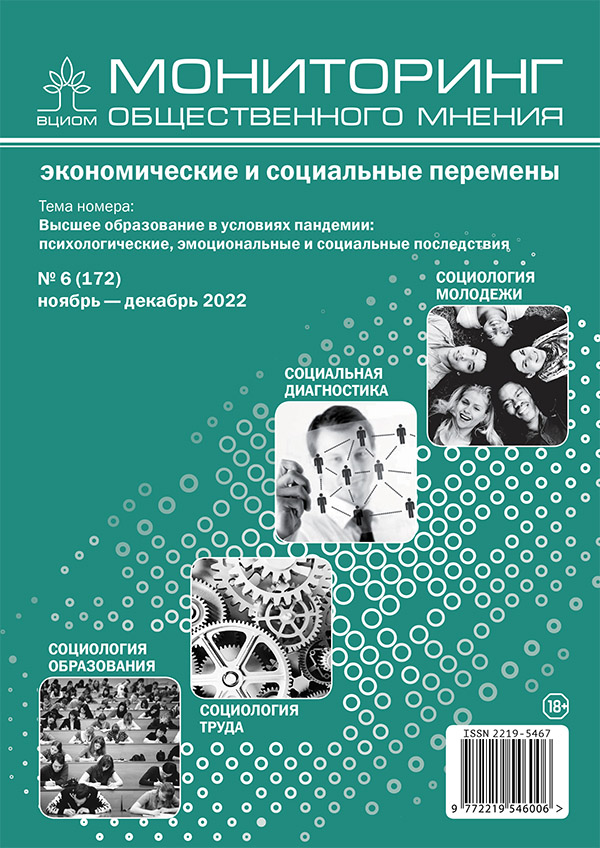Self-Assessment of Learning Effectiveness and Types of Difficulties for First-Year Students During the Period of Coronavirus Restrictions
DOI:
https://doi.org/10.14515/monitoring.2022.6.2292Keywords:
student experience, student success, COVID-19, first-year students, obstacles in educationAbstract
Student experience in the first year of study is crucial for the entire educational trajectory at university. Previous studies show that academic and social integration into the university environment takes place in the first year. By turn, social and academic integration during the first year largely determine student success for the subsequent years of study. Based on the data from the national online student survey, this article analyses the difficulties faced by first-year students at Russian universities during the COVID-19 pandemic. The dataset includes more than nine thousand cases from universities representing all federal districts of the Russian Federation. The analysis shows that the key difficulties first-year students meet during the pandemic include: socialization difficulties (lack of communication with teachers and other students), difficulties with self-organization (it is difficult to keep attention online for a long time, concentrate on self-study of the material), as well as technical issues (problems with communication, poor technical conditions for remote participation in classes). Using latent class analysis, we divided survey participants into eight groups by their difficulties. Then we use membership in these groups to predict self-reported learning effectiveness. The analysis results suggest that difficulties with socialization and self-organization for learning are stronger predictors of low self-reported learning effectiveness than technical issues. This indicates the importance of the systematic work of universities to provide opportunities for communication between students and instructors, as well as the development of self-organization skills for first-year students in distance and blended learning.
Acknowledgments. The authors are grateful to Maria Abramova and the Center for the Sociology of Education of Tomsk State University for their joint research.
Downloads
Published
How to Cite
Issue
Section
License
Copyright (c) 2022 Monitoring of Public Opinion: Economic and Social Changes Journal (Public Opinion Monitoring) ISSN 2219-5467

This work is licensed under a Creative Commons Attribution-NonCommercial-ShareAlike 4.0 International License.






